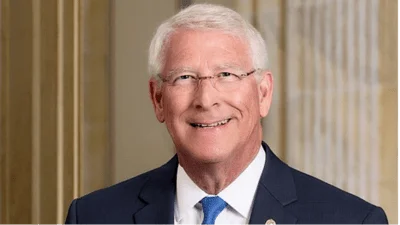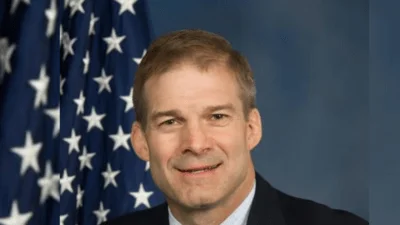Congresswoman Betty McCollum (D-MN), Chair of the Interior, Environment, and Related Agencies Appropriations Subcommittee, delivered the following remarks at the Appropriations Committee's markup of the fiscal year 2020 Interior-Environment bill:
I want to thank Ranking Member Joyce for his collaboration and partnership through this process, and all the Members on our Subcommittee for their contributions.
We’ve been together for many hours of hearings and meetings, and we have a strong result to show for it in this bill.
I am also grateful for the leadership of Chairwoman Lowey, and Ranking Member Granger.
I especially want to thank Chairwoman Lowey, for her leadership in putting forward a full slate of allocations in the beginning of this process. This transparency helped us make informed decisions in the bill before us today.
This bill rejects cuts proposed by the Trump Administration, including those that would have harmed the ability of the EPA to keep our communities safe and healthy, defunded the Land and Water Conservation Fund, and decimated scientific research to combat climate change.
Instead, we are choosing to make important investments to protect the air we breathe and the water we drink.
We are honoring our federal trust and treaty responsibilities to provide for the health, safety, and education of our Native American brothers and sisters.
And, we are prioritizing funding to research, combat, and adapt to climate change.
For fiscal year 2020, the Subcommittee is recommending a total of $37.3 billion in discretionary funding. This is an increase of $1.7 billion over last year’s enacted level.
There is also an additional $2.25 billion in fire cap adjusted funds for suppression operations.
These critical funds allow the Forest Service to fight wildland fire without borrowing from non-fire programs.
This Interior bill is the product of hard work and collaboration. The Subcommittee held a total of sixteen hearings, including two days of American Indian and Alaska Native public witness hearings, a non-tribal public witness day, and a Member Day.
We received nearly 6,500 requests from Members of Congress and we worked hard to create a bill that reflects the priorities of the entire House. I am pleased to report that we fulfilled -
either in total or in part - more than 93 percent of those requests.
This bill continues our subcommittee’s non-partisan approach to addressing issues facing our Native American brothers and sisters. Like all of us in this room, I am committed to honoring
our trust and treaty obligations to tribal nations. We should all be proud that this bill continues to move us in the right direction.
In fact, the bill invests over $10 billion to support and strengthen Indian tribal self-determination, including $1 billion - the highest funding ever recommended - for the operation of Native education programs.
We are also taking important steps in this bill to move toward advance appropriations for the Indian Health Service and the Bureaus of Indian Affairs and Indian Education.
Tribes have asked for this stability in funding, and we are directing the agencies to prepare for taking on this responsibility.
This bill also provides funding to protect and preserve our landscapes and biodiversity, including $524 million for the Land and Water Conservation Fund, which was permanently reauthorized earlier this year.
Ensuring that all Americans have safe drinking water is a top priority of this bill.
We fully fund the Drinking Water State Revolving Fund at the authorized level, and for the first time, we include funds for newly authorized grants to address targeted drinking water and wastewater needs.
This includes addressing lead in drinking water, ensuring that all Americans have access to safe drinking water, and reducing sewer overflows.
The bill also targets funds to address the crisis of PFAS contamination in our water supplies.
Finally, this bill shows that we are serious about addressing climate change and taking on polluters.
Our funding increases recognize the importance of science to understand and address the impacts of climate change on our natural and cultural resources, ecosystems, and
human health.
The bill boosts funding for climate change research, tracking and reporting of greenhouse gas emissions, and energy and water efficiency programs at EPA.
It increases ecosystem and climate related funding in the US Geological Survey, and restores programs proposed for elimination in the Fish and Wildlife Service.
The bill makes numerous investments in the health of our communities and our environment, including
* for compliance and enforcement activities at EPA, to ensure that every American has equal access to clean air and clean water;
* for Tribal Resiliency programs and for green infrastructure in Indian Country, to build more efficient hospitals and schools;
* for research and development critical to forest health, particularly with respect to climate change and watershed improvement; and
* for Environmental Justice funding at EPA, to assist partners in better incorporating environmental justice considerations into decision making.
I am exceptionally proud of the work that went into this bill.
I want to thank our staff, on both sides of the aisle, both on the Committee and in the personal offices, for the countless hours of hard work you put into this bill.
I thank all of you for your engagement and commitment.
We know that we will have additional work to do in negotiating with our Senate colleagues and this Administration.
But we shouldn’t let inaction by another branch of government stop us from moving forward a good bill for the American people.
And this is a good bill. It makes important investments in the health of our communities and our environment, and I urge my colleagues to support it.
Thank you, I yield back.
Source: U.S. Department of HCA









